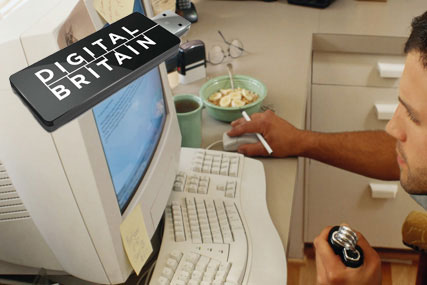
The £200m will be reallocated from money left over from the Digital Switchover Help Scheme. Run by the BBC, the scheme was set up to help the old and disabled with the transition from analogue to digital television by 2012.
Universal broadband is part of the Government's plans for what it calls Next Generation Broadband, which aims to ensure the UK has a first-class digital infrastructure.
The Universal Service Commitment will require a change in legislation. It will be delivered through a new body, the Network Design and Procurement Group, which will be set up by the end of July - with a chief executive appointed in the autumn.
It will be funded by an independent Next Generation Fund, which will include contributions from public spending, private partners, other public sector organisations and commercial contributions from telecoms operators. Operators will pay a fixed-rate levy, based on a supplement of 50 pence per month on every fixed copper telephone line.
The final Digital Britain report also outlines the Government's commitment to provide media regulator Ofcom with "modernised duties" to crack down on illegal piracy.
From September, new legislation will introduce measures on copyright licensing to tackle illegal file sharing aimed at deterring online copyright infringement. This will give Ofcom the duty "to secure a significant reduction in unlawful file sharing". The regulator will have to report any unlawful activity and enforce civil court action for repeat infringers.
The Government will also allow ISPs to introduce intermediate technical measures, such as bandwidth reduction or protocol blocking, if these measures prove unsuccessful.



.jpg)


.jpg)